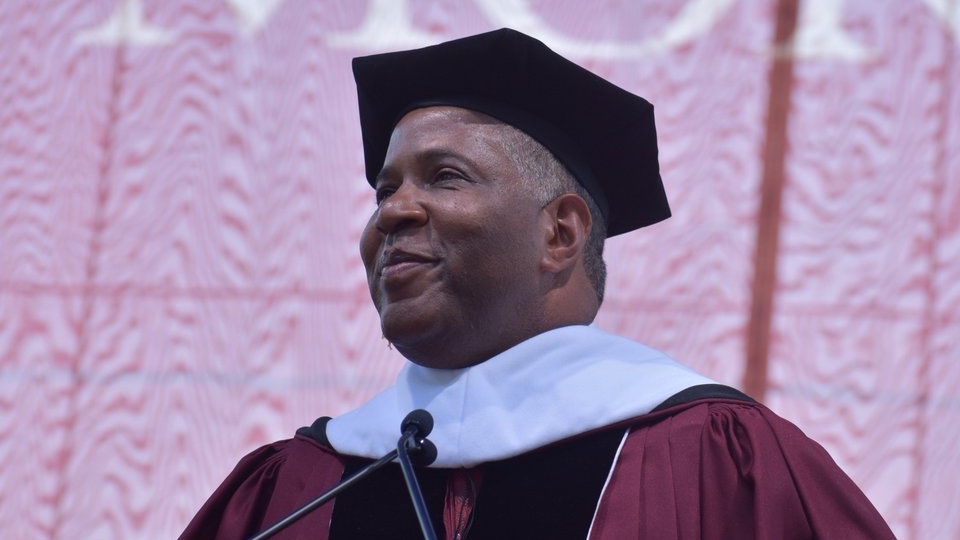After pledging to pay off the student loans of Morehouse’s graduating class of 2019, the receipts for Robert F. Smith's astounding philanthropy are in. Smith, a former investment banker and chemical engineer, donated a whopping $34 million to the Morehouse College Student Success Program — a fundraising and research initiative that will allow graduates to begin their careers without having to worry about debt holding them back.
The final check Smith signed was actually less than he had anticipated. The 56-year-old philanthropist had pledged $40 million when he first announced his gift at the commencement ceremony in May.
“You great Morehouse men are bound only by the limits of your own conviction and creativity.” –Robert F. Smith @RFS_Vista
#MorehouseGrad2019
pic.twitter.com/rw1VGMHaPm— Morehouse College (@Morehouse) May 19, 2019
In a statement released by the HBCU, Morehouse President David A. Thomas referred to the money as a "liberation gift."
"This liberation gift from Robert Smith — the first of its kind to be announced at a graduation in higher education— will be life-changing for our new Morehouse Men and their families," Thomas said. "It is our hope that our graduates will use their newfound financial freedom to pursue their career goals, to lead and serve the community, and to remember the spirit of the gift given to them by paying it forward to support the education of future classes of Morehouse Men.”
Last week, Blavity reported that Smith’s generosity will aid more than 400 students and will cover loans taken out not only by students, but their parents as well. The gift will cover federal subsidized loans, federal unsubsidized loans, Georgia Student Access loans, Perkins Loans, Parent Plus Loans and certain private student loans.
A study done by the United Negro College Fund found that HBCU students "borrow at higher rates and, consequently, graduate with substantially higher debt than their peers at non-HBCUs.”
The UNCF reports that as of 2013 an average of about 80% of HBCU students take out federal loans as opposed to 55% of non-HBCU students.
Although HBCU students tend to have greater debt than the non-HBCU student, HBCUs generate $14.8 billion in economic impact annually, according to the UNCF.
With Smith’s donation allowing students to begin their career without being tied down, we may see that economic impact rise even more.
